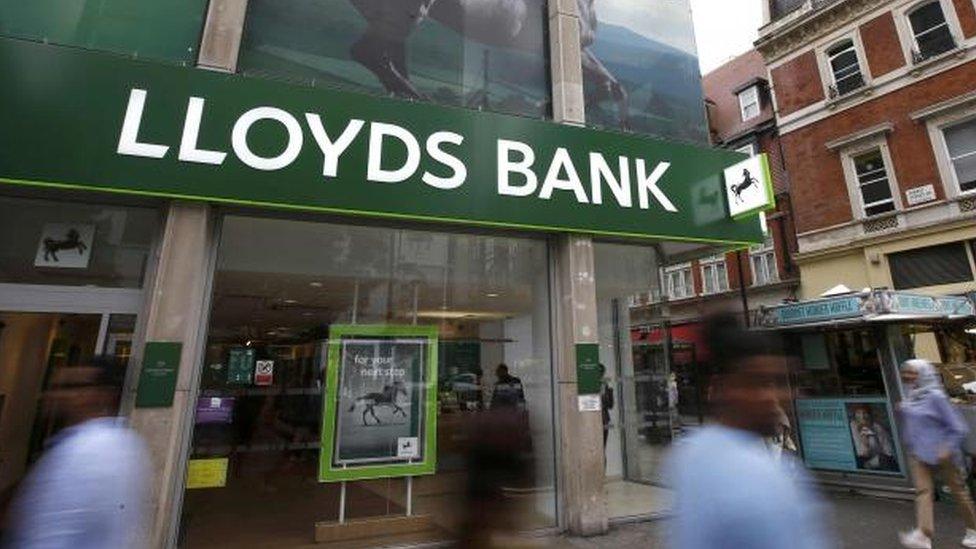Lloyds Banking Group cuts 1,200 jobs
- Published

Lloyds Banking Group has confirmed 1,230 jobs are being cut as part of its continuing restructuring plan.
The bank, which is 9% state-owned, and has been working to reduce costs and improve returns for shareholders.
The jobs will go from the group operations, retail, customer products and marketing, finance and risk divisions.
The cuts are part of the 9,000 job losses the bank first announced in October 2014.
The bank said the process involved "difficult decisions" and all affected staff had been told.
Employee unions Accord and Unite were consulted prior to the announcement, the bank said, but Unite national officer Rob MacGregor called the move "horrific".
Lloyds said its policy was to use natural turnover and to redeploy people wherever possible in order to "retain their expertise and knowledge" within the firm.
Voluntary redundancy packages will also be offered with compulsory redundancies happening as a "last resort".
Another part of the strategy to cut costs and modernise is the closure of hundreds of branches of the bank.
In July, the bank said it was doubling the number of planned branch closures to 400. They will all close by the end of 2017.
The bank attributed the cuts to changes in people's banking habits, with more demand for online services, as well as the sustained period of low interest rates.
"Lloyds continues to cut jobs as part of its efficiency drive, which comes as no surprise given the uncertain economic environment the banking sector now faces," said Laith Khalaf, a senior analyst at Hargreaves Lansdown.
"Some of the job losses stem from Lloyds cutting its cloth, but some are simply about the ongoing rise of digital banking services, which are reducing the need for a high street presence.
"Job losses are never positive news, but what Lloyds is doing at least in part reflects an ongoing shift in how customers transact with their banks," Mr Khalaf said.
Last week, the government scrapped plans to sell its remaining stake in Lloyds to members of the public, citing market volatility for the decision.
Instead, the stake will now be sold via a "trading plan", with small tranches of shares sold to institutional investors.
- Published7 October 2016
- Published28 July 2016
